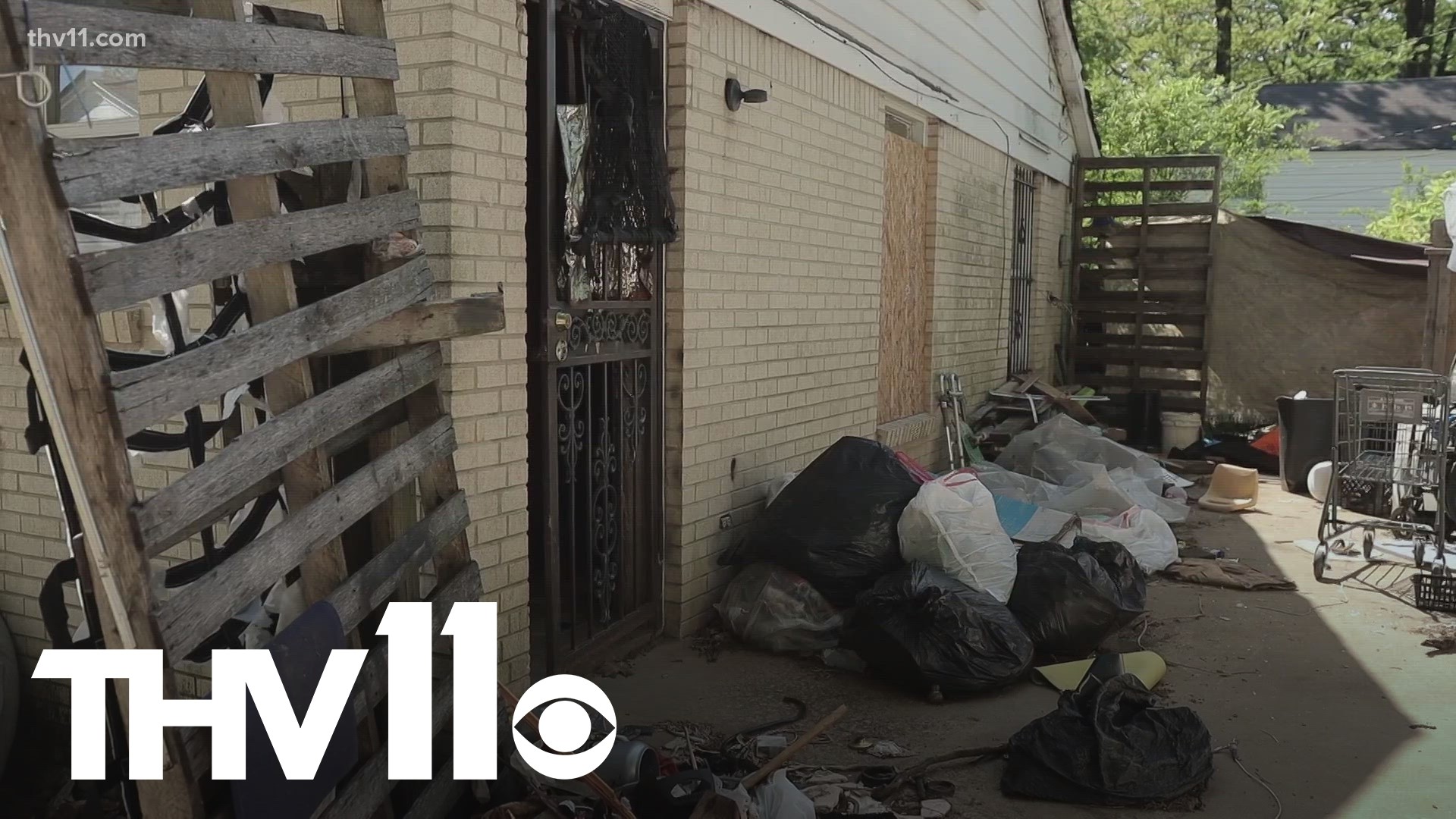LITTLE ROCK, Ark. — Hundreds of homes and businesses have been sitting boarded up and vacant for years— posing safety hazards to nearby neighbors.
It's a big problem in Little Rock, but it's an issue that the city explained isn't an overnight fix.
"It's been a problem for a number of years," Little Rock Building Codes Manager, Chuck Givens said. "We've been more reactive than proactive over the years, you know, but we're trying to get more proactive. In fact, we've got a position open for that. it will handle just vacant commercial buildings, among other things."
He said that Little Rock currently has at least 50 vacant commercial buildings, which has concerned some neighbors.
"We do have that issue of you know, people complain about it and you know, I would too if it was next door to me," Givens added.
Property value is part of it because he said vacant buildings can be places to commit crimes and they're also hazardous.
"It's a place for people to come in and it gets on fire, might get their place on fire," he described.
That has created problems for the Little Rock Fire Captain and his crew because they're the ones who have to go put out the flames.
"We're not sure you know how they're getting in, are they going through a crawlspace and cutting a hole in the floor, which then that poses a hazard for firefighters entering a smoke-filled environment, a hole in the floor is a bad day," Fire Captain Jacob Lear-Sadowsky said.
He also said that between January and March of 2023, they put out at least 10 fires in vacant buildings— and one of them turned deadly.
A man had been staying at a house on Charles Bussey Avenue without permission in January when an unintentional fire started.
"Sometimes, you know there are people there that are in need of medical attention. We provide that for them. But most of the time the structures are clear," he said.
He explained that oftentimes people inside vacant buildings damage or steal some of the materials that are meant to slow down any potential fire spread.
"During that vandalism and theft, some of the items that are there to prevent the fire spread are destroyed. So sheetrock being exposed and destroyed, exposing the studs allows for the fire to progress quicker," he added.
The problem isn't just vacant commercial buildings, but homes too.
"We have a large number of vacant homes that we are we are working as much with the owners as we can as diligently as we can to get these rehabilitated and or removed," Little Rock Code Enforcement Manager for the city's housing and neighborhood Programs Division, Brian Contino said.
While the city deals with dozens of vacant commercial buildings, Contino said vacant homes have been an even bigger problem with around 500 sitting empty across the city.
"We want to rehabilitate these properties as much as we can," he said.
That's because tearing down buildings comes with a big price tag.
Both residential and commercial divisions each have about $300,000 budgets for tearing down condemned buildings each year, but that money doesn't normally stretch as far as you might think.
"Just like this building, probably between thirty and forty thousand, probably to take this building down at least. And that's, that's without even knowing if the asbestos is in there," Givens described.
Now, buildings that were destroyed in the March 31st tornado have been added to the list of ones to keep an eye on.
"I think most of those buildings will probably be taken down I mean, you know, probably redeveloped in some areas or someone will just to the point where they'll just have to be demolished, you know because of the shape they've gotten into," he said.
As time goes on and buildings either get demolished or rebuilt, Givens wants people to know that a lot of time and resources go into those decisions.
He explained how both of those are reasons you may see so many vacant buildings. It's not just more funding that's needed to help the problem, but also streamlining the process it takes to make those tough decisions.
"Hopefully, we can be more proactive toward getting rid of some of these buildings," Givens said.
Contino said the city has a program where property owners can actually donate their property to the city for a tax write-off— and it would then go into the city's land bank system where developers can build new housing.
You can find more information about that program here.

